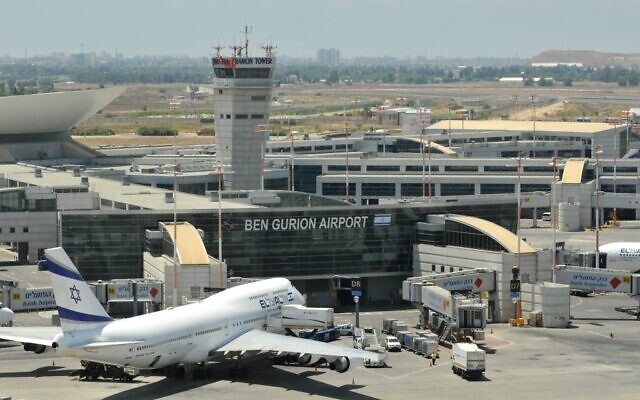COVID Travel Restrictions Impact Atlantans and Israelis
Ben-Gurion Airport could be closed until after Passover, with some rescue flights to Israelis caught abroad.
When Gita Berman’s daughter Mara had her baby Carmi in Israel in June, the Atlantan was anxious to travel to the country to be there for her daughter, and to see her latest grandchild. After several frustrating months, Berman finally received special permission to enter Israel, despite the pandemic. In those days, only Israelis were allowed to fly to Israel.
As of Jan. 24, both inbound and outbound flights through Ben-Gurion Airport – Israel’s only international airport – were abruptly restricted to attempt to keep out COVID variants. At first it was a total suspension. But when Israelis were caught abroad after the government suddenly announced its airport closure, a few humanitarian flights were arranged to bring some Israelis home. Some, but not all, and initially only El Al was allowed to provide those flights.
When the U.S. government interceded, arguing that the exclusion of its airlines broke agreements with Israel, Delta and United Airlines were finally allowed to provide rescue flights for Israelis going home. The daily quota of passengers was raised from 600 to 2,000, then lowered to 200, leaving many Israelis clamoring for one of the few seats available.

According to the Israel Democracy Institute, Israel is the only democracy in the world barring entry to its own citizens in its COVID clampdown.
One of those Israelis who labored for approval to return to Israel was Nachman Shai, who was a visiting professor at the Institute for the Study of Modern Israel at Emory University until last year, when he went to Duke University. At first, he was denied his travel application for permission by the governmental committee that was reviewing requests on a case-by-case basis.
“It was quite a strange and long struggle with the government. It took over a week,” he told the AJT, “and my case was unique. I’m the only Israeli running for the Knesset and trying to get home.”
Shai had served in the Knesset, Israel’s parliament, from 2009 to 2019, representing the Kadima, Labor and Zionist Union parties. He is number eight on Labor’s list in the upcoming March 23 election. [The latest polls indicate that the most Labor candidates expected to attain Knesset seats is seven.]

“I was booked for a flight but then the government lowered the number of Israelis allowed in from 2,000 to 200, so my seat was canceled. I was told no reason why I was denied entry, and no reason why I was allowed” a seat, about a week later. Shai explained that he didn’t want to use his connections in Israel to obtain permission, but he sounded frustrated with his efforts.
“I need to go there and campaign. I need to go to TV studios. And when I get back, I will need to quarantine,” Shai said, despite the fact that he has received two doses of the COVID-19 vaccine in the United States. Also, while on the Duke University campus, he was being tested nearly every day. “I’m waiting to hear how long I must be in quarantine.”

His first flight had been booked on United Airlines, but when that was canceled, he booked a seat on El Al on March 2. On March 1, Shai tweeted that again, Israel denied him entry.
As of the last weekend in February, the general ban on flights in and out of Ben-Gurion – except rescue flights — was expected to continue through March 6, although Israeli Channel 12 reported that the country’s health officials were warning that Ben Gurion would likely remain closed until after Passover.
At the time Berman’s granddaughter was born, “the Israeli government was issuing special visas for foreign grandparents who enter the country to celebrate a birth, bar/bat mitzvah or wedding. You had to provide documents and agree to quarantine and show proof of health insurance covering COVID,” Berman said. She ended up spending the month of September in Tel Aviv, two weeks of which were in quarantine. But spending time with her daughter and three grandchildren there was worth it.




comments